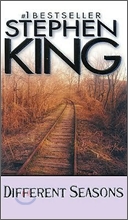A small request: I really enjoy perusing your blogs, but two things would make the experience a bit easier for me. First of all, I would really like to get to know you all individually and know your names. Some of you have profile pictures which really helps putting faces to names. Thank you! Second of all, I really dislike the "comment verification" codes. They add precious seconds to the task of posting comments. If you could, please deactivate the word verification in the "Settings" section. Thanks in advance!
_______________________
As freshman who may have an interest in both studying literature and writing creatively, I think it's very important that you understand the very basics on innate story structure. In order to understand "story" in the purest sense of the word, we have to examine what almost every story has in common. A beginning, middle and end are just the tip of the ice berg, and even in a reflective essay that isn't a purely a "story" you will often find these stages.
Try to keep the Hero's Journey in mind when you watch, read, or write any kind of story. It helps contextually, and is also kind of fun to think about. In any case, it will change the way you watch films (for better or worse).
We've clearly examined these stages in "Rita Hayworth & The Shawshank Redemption," and I'd also like you to think about them while watching the film. There will be a little of this on the midterm exam.
I - The Monomyth
We don't have to call it the monomyth, and in Hollywood most people don't. They call it the "Hero's Journey," and any director or writer who wants to get a story on film generally has to conform to and complete that journey themselves for a studio to fund a project. More importantly, audience's expect it whether they are aware of it or not. While some films follow it more than others, we can argue that all of them do, and the ones that make the big money (Star Wars for example) follow it to a T. Some call it the death of creativity. Some call it the ultimate truth. Others proclaim that it can't be escaped in nature let alone in film or novels. Even history seems to follow its patterns. In any case, we need to look at the monomyth before we can compare or adapt anything. So.... what's in a good story?
So with a bit of background knowledge, you can see why Hollywood uses this recipe so heavily. When we go to the cinema, we grab our popcorn, take a seat, and sit through 120 minutes of film without doing much thinking. We don't draw comparisons to Homer, Shakespeare, the Bible, or ask ourselves if we've reached "the belly of the whale." After the movie, we leave, get in the car, and discuss with our friends what we thought. Was it good? Did it satisfy our expectations? If it didn't, chances are that the filmmakers didn't get something right in the monomyth - the story in every story. Maybe there wasn't much "belly of the whale" and we fell asleep. In any case, once you become aware of the Hero's Journey, it becomes very hard to ignore. Consider your future enjoyment of all films to be slightly distracted by watching for these things. Even the worst romantic comedy has a "call to adventure" and "meeting the mentor."
For more - check out the Monomyth and the Hero's Journey on Wikipedia. Click around, and learn about Campbell. With Stephen King's stories in mind, we will often examine if the "call to adventure" appears the same on screen as it did in the book. And that's part of the fun.
Click on the images below for a larger look. This is a detailed (perhaps overly) representation of Campbell's concept - a total of 17 stages. We will not be referencing this because it's simply a little bit too complicated.
For our purposes, I like this more simplified version below, the one Hollywood has adapted:
On a story by story basis, not everyone will agree on the order, the terms used, or what's what in a film. At times it can be quite confusing and debatable. In any case, the above is the vocabulary we will stick to.
II - Script vs. Book
As you can see from the above, a script writer has a certain task in store when they decide to adapt something. What makes this even more interesting is that in today's film industry, the adaptations are no longer limited to famous novels, biographies, or large scale historical events. Short children's books (Where the Wild Things Are) and even video games (Lara Croft, Resident Evil, and supposedly even Angry Birds) are having their stories enlarged into films. So if the original story of Angry Birds seems to lack a mentor or a magic elixir, it's up to the screenwriter to invent one. We can also imagine the opposite scenario in a massive story such as Lord of the Rings when it became a stage play (too many mentors and magic elixirs for a cast and stage of any size - therefore a process of picking and choosing).
Since our first bit of reading in this class was King's "Rita Hayworth and The Shawshank Redemption," let's take a look at the shooting script.
Here is a link to a pdf version of the script.
Here is a link to a pdf version of the novella.
Even after a quick look to compare King's narrative, which begins with Red in first person, we can see how writer/director (and auteur?) Frank Darabont had to find a new way in to the story. Visually and perspective wise, he had to break ground and "show" instead of "tell" to save time and make things interesting. Essentially, a screenwriter has to write visually and economically, while a novelist has freedom to roam poetically and indulge "verisimilitude" without a budget.
Things to keep in mind:
- Screenplays are formatted precisely to approximate about 1 minute of film per page. Since the golden age of Hollywood after the Depression, the font of choice has always been and always will be Courier with a size of 12.
- Most studios and producers won't read a script that's much more than 120 pages as a rule.
- Pages 1-20 usually keep us in the "ordinary world" or at least establish it. If we go too far beyond this without an "inciting incident" or "call to adventure," producers will stop reading in the same way an audience will stop watching. Script goes in the trash.
- Pages in the 30, 45, 60, and 90 zone usually mark a turning point, or a crisis that moves the story forward through a three act structure (the second act usually being the longest at anywhere from 45-60 pages).
- Did the screenwriter choose the right events at the right time? Did they modify them and why?
- Did the screenwriter change the POV (point of view)? Does the removal or addition of a first person narrator help or hurt the story?
- Does the character in the book want the same thing as the actor in the film? Does the theme surface, or is it buried in poor acting? Or is truly brought to life through an Oscar performance (as with Morgan Freeman)?
Group Work Assignment for next week, in class:
Now that you have a base knowledge of the Hero's Journey, I'd like you to further familiarize yourself with it by mapping it out in a story/film/legend/historical event etc. of your choice. One challenge you might have is finding a story that you've all seen/heard/read, but I somehow think this won't be a problem (check out this list of monomyths that undeniably follow the course). Should I make a "NO HARRY POTTER" rule? Try to challenge yourselves a bit, and if one person isn't familiar or you all need a bit of a brush-up on the plot, definitely head to Wikipedia or IMDB where you can find a detailed synopsis complete with spoilers.
You'll all have to discuss these stages, and also elaborate on each point (a few sentences is fine). Combining three act structure with the journey and character arc, Christopher Vogler (another Hollywood script guru known for work on The Lion King), helps us all out with this breakdown that's made him famous:
Copy and past the following, elaborating on each point (you can appoint a secretary if you want), and zap it into your blogs.
Group Members:
Our Story:
Why we chose it:
ACT I
1. Ordinary World:
2. Call to Adventure:
3. Refusal of the Call:
4. Meeting the Mentor:
5. Crossing the Threshold:
ACT II
6. Tests, Allies, Enemies:
7. Approach to the Innermost Cave:
8. Ordeal:
9. Reward:
ACT III
10. The Road Back:
11. Resurrection:
12. Return With the Elixir:
Points of contention (ifs/ands/buts):
____________________
If any of you wanted to rewatch that documentary on Stephen King, or were absent, here it is on YouTube:








